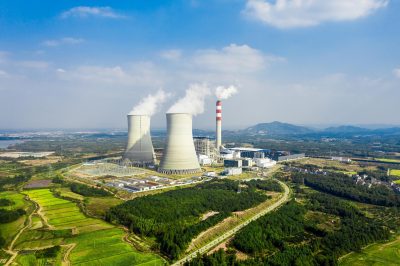
Nuclear power and the way
towards a greener future
Nuclear energy is an integral part of sustainable development. It offers a clean, reliable and economically viable alternative to fossil fuels, thus contributing to the global goals of reducing emissions and protecting the environment.
Key benefits of nuclear energy
for a sustainable future
Benefits for modern society
Nuclear power plays a key role in the energy sector in modern society. This technology relies on nuclear reactions to generate electricity. Despite the challenges it poses, nuclear energy has many advantages in terms of reliability, reducing greenhouse gas emissions and diversifying the energy mix.
The key to diversification and energy security
Diversification of the energy mix is another key factor supporting the use of nuclear energy. Reliance on a single energy source can pose a risk to energy security. Nuclear energy allows a country to reduce its dependence on unstable or geopolitically sensitive sources and to ensure a steady and secure supply of electricity.
Low carbon emissions
One of the biggest advantages of nuclear power is its ability to provide a reliable source of electricity. Nuclear power plants operate continuously regardless of weather and climate conditions, which is crucial for maintaining the stability of power grids. This reliability is particularly important in a modern society that increasingly relies on electricity for its daily functioning.
High energy density
Diversification of the energy mix is another key factor supporting the use of nuclear energy. Reliance on a single energy source can pose a risk to energy security. Nuclear energy allows a country to reduce its dependence on unstable or geopolitically sensitive sources and to ensure a steady and secure supply of electricity.
Reliable and stable power generation
However, the problems associated with nuclear power cannot be ignored. One of the most significant is the issue of nuclear waste management. The safe and long-term storage of this waste or its use for secondary applications is a key element in maintaining the sustainability of nuclear energy. Another aspect is the safety concerns associated with possible accidents in nuclear power plants, which require constant innovation and improvement of safety standards.
Long-term source of energy
Overall, the use of nuclear power in the energy sector has its advantages and challenges. It is very important to continuously research and develop new technologies and practices that minimise risk and improve performance. Combined with renewables and energy efficiency, nuclear energy can play an important role in the future energy mix and contribute to environmental sustainability and energy security.
5 reasons why nuclear power
helps create a sustainable
energy future
Developing a highly skilled workforce
Supporting local economies
Reducing dependence on climatic conditions
Supporting the transition to a low-carbon economy
Long-term energy storage
How does
nuclear power work?
Nuclear power works on the principle of nuclear fission, a process in which heavy atomic nuclei such as uranium are split into lighter nuclei, releasing vast amounts of energy.

This process takes place in the core of the nuclear reactor, where the fuel rods containing enriched uranium are located. As the uranium cores fission, they release heat. This heat is then used to produce steam from water in a closed system. The steam drives a turbine which is connected to a generator, and so electricity is produced.
Nuclear reactors are equipped with systems to control and maintain the reaction, including control rods that absorb nuclear neutrons and regulate the reaction. The result is a reliable and powerful source of energy that produces minimal carbon emissions.
Energy independence through nuclear power
In today’s world, where energy security is a key priority, nuclear energy represents a significant step towards energy self-sufficiency and independence.
Nuclear energy offers a stable, reliable and long-term source of energy, allowing countries to reduce their dependence on fossil fuel imports and increase control over their own energy resources.
With advances in safety and sustainability, nuclear energy is becoming an increasingly important part of the global energy strategy, providing an environmentally friendly and efficient alternative that can help ensure energy independence for the future.

